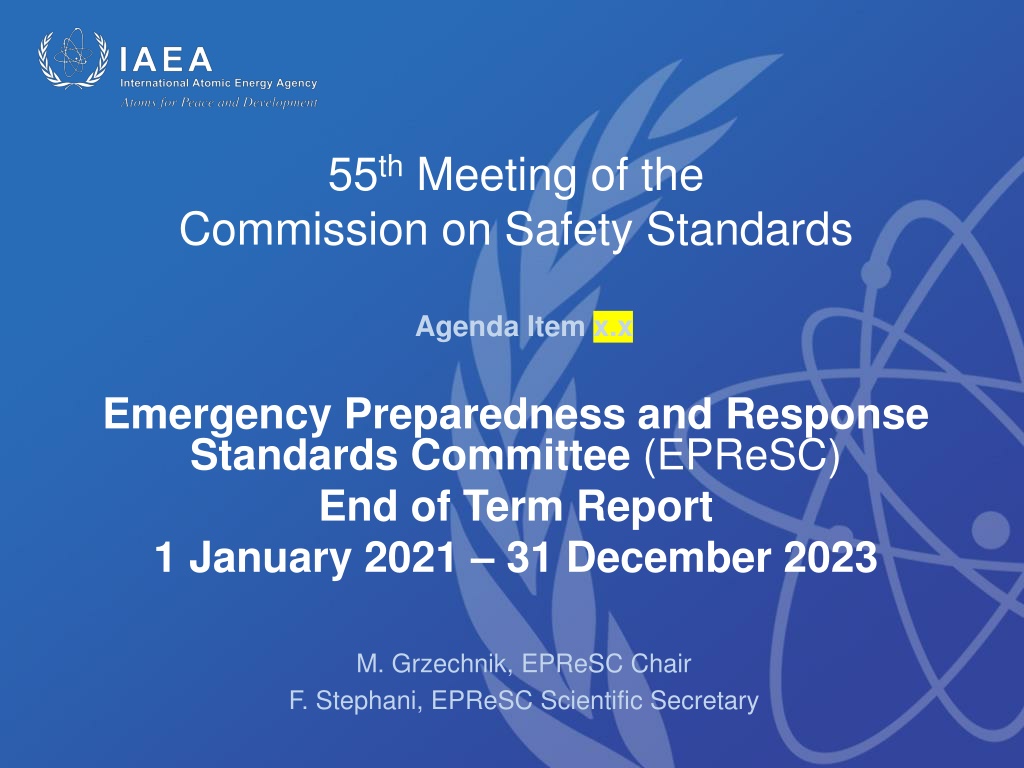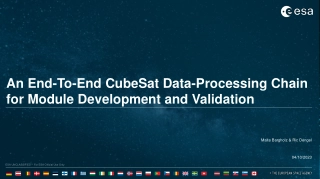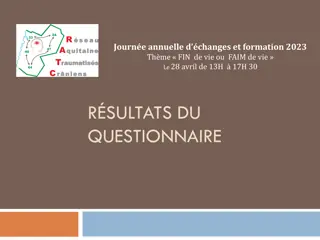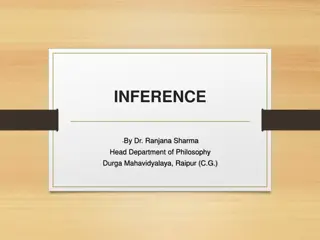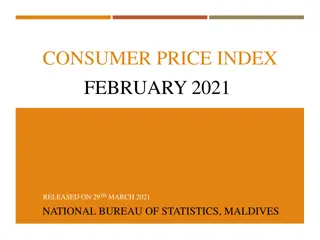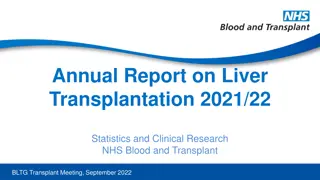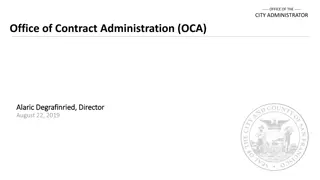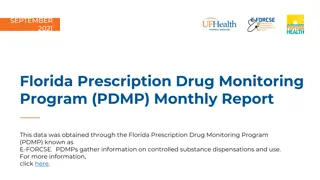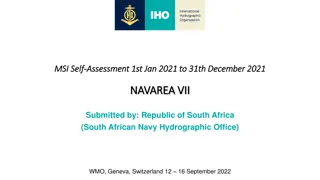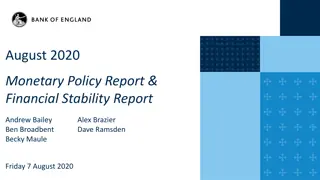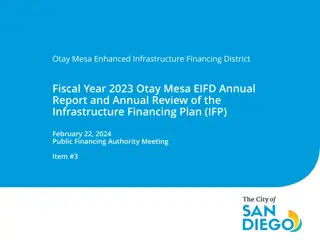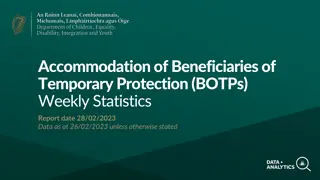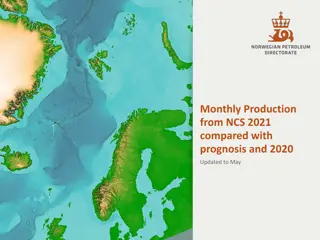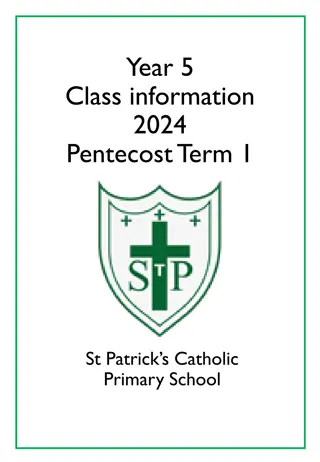End of Term Report of EPReSC for 2021-2023
The End of Term Report for the Emergency Preparedness and Response Standards Committee (EPReSC) covering the period from January 1, 2021, to December 31, 2023, outlines the activities, achievements, and context of the committee's third term. The report highlights the approval process, establishment details, membership statistics, working methods, and adjustments made during the term, including virtual meetings due to COVID-19 restrictions.
Download Presentation

Please find below an Image/Link to download the presentation.
The content on the website is provided AS IS for your information and personal use only. It may not be sold, licensed, or shared on other websites without obtaining consent from the author. Download presentation by click this link. If you encounter any issues during the download, it is possible that the publisher has removed the file from their server.
E N D
Presentation Transcript
55thMeeting of the Commission on Safety Standards Agenda Item x.x Emergency Preparedness and Response Standards Committee (EPReSC) End of Term Report 1 January 2021 31 December 2023 M. Grzechnik, EPReSC Chair F. Stephani, EPReSC Scientific Secretary
The end of term (2021-23) report was approved by EPReSC through silent procedure and by the EPReSC Chair on 18 December 2023
Context EPReSC was established in July 2015 The previous term 2021-23 was the 3rd term of EPReSC o 60 Member States designated 96 representatives o 10 International Organizations observers nominated EPReSC works on the basis of the Terms of Reference common to all the IAEA Standards Committees
Context EPR Safety Standards that existed at the start of the 2021-23 term 2006 2007 2015 2018 2020 2011
Activities during the 2021-23 term Working method o Two regular meetings per year, including joint sessions with other Committees compatibilities subject to calendar o Review and discuss draft Safety Standards (led by EPReSC or another Committee) and draft Security Guidance as per the SPESS B process o Discuss activities relevant to the implementation of EPR Safety Standards and other strategic aspects o Regular provision of information by NS-IEC on the development of technical guidance documents, training materials and use of EPRIMS
Activities during the 2021-23 term Working method o Due to COVID-19, EPReSC-12 and EPReSC-13 were conducted virtually with shorter durations to make the timelines compatible with the different time zones from which participants attended remotely o EPReSC-14, EPReSC-15 and EPReSC-16 were conducted inperson at the IAEA Headquarters in Vienna, with possibility for virtual participation o EPReSC-17 participation for observers only, in order to bring back, and limit, active participation to the meeting room provided arrangements for virtual
Activities during the 2021-23 term Working method o EPReSC members contributed intersessionally on specific topics or issues as agreed by EPReSC through the establishment of temporary Working Groups (WGs) o At EPReSC-14, to make suggestions on the following topics: Management of radioactive waste in an emergency Management of non-radiological consequences Feasibility for, and usefulness of, developing a specific safety guide on EPR for facilities in Emergency Preparedness Category (EPC) III o Those 3 WGs held a number of virtual meetings and presented their findings and suggestions at EPReSC-15. This work fed into the discussion for the medium-term plan development of EPR Safety Standards
Activities during the 2021-23 term Working method o At EPReSC-16, EPReSC approved the formation of 3 WGs to review all 26 requirements in GSR Part 7: General Requirements Functional Requirements Requirements for Infrastructure o Those 3 WGs held a number of virtual meetings and presented their findings and suggestions at EPReSC-17. The intent of the review was to inform the revision of GSR Part 7
Activities during the 2021-23 term Meetings of EPReSC o EPReSC-12, 15-17 June 2021 o EPReSC-13, 7-9 December 2021 o EPReSC-14, 7-9 June 2022 o EPReSC-15, 8-10 November 2022 o EPReSC-16, 13-16 June 2023 o EPReSC-17, 5-7 December 2023
Activities during the 2021-23 term Joint meetings with other Committees o Joint EPReSC/WASSC meeting, 29 Sept. 2021 Presented existing IAEA Safety Standards and informational publications on the management of radioactive waste in an emergency exposure situation, Presented the transition phase from an emergency exposure situation to an existing exposure situation, and Identified areas for future cooperation
Activities during the 2021-23 term Joint meetings with other Committees o Joint EPReSC/NSGC meeting, 4 Nov. 2021 Presented past and present activities of interest for both Committees, and Identified future opportunities for interface work
Activities during the 2021-23 term Joint meetings with other Committees o Joint EPReSC/RASSC, 8 June 2022 Approved DPPs and draft Safety Standards that required approval by both Committees, and Discussed interfaces between emergency and existing exposure situations
Activities during the 2021-23 term Joint meetings with other Committees o Joint EPReSC/NUSSC meeting, 9 Nov. 2022 Presented updates on various IAEA activities dealing with the safe deployment of Small Modular Reactors (SMRs), Presented overviews of the IAEA s Integrated Regulatory Review Service (IRRS) and the IAEA s Emergency Response Review (EPREV) missions Approved a DPP and draft Safety Standards that required approval by both Committees Preparedness and
Activities during the 2021-23 term Joint meetings with other Committees o Joint EPReSC/RASSC meeting, 14 June 2023 Approved DPPs that required approval by both Committees Presented updates on activities of interest for both Committees Presented key topics to work towards a common approach in the management of exposures under the scope of both Committees
Activities during the 2021-23 term Joint meetings with other Committees o Joint EPReSC/NUSSC/NSGC meeting, 15 June 2023 Provided updates on activities of interest for the three Committees Approved (EPReSC and NUSSC) and clear (NSGC) one draft Safety Standard and two DPPs that required approval/clearance by the three Committees
Activities during the 2021-23 term Joint meetings with other Committees o Joint EPReSC/WASSC meeting, 4 Sept. 2023 Presented on Safety Standards (under the lead by EPReSC or WASSC) and informational publications (prepared by NS-IEC or NSRW) that were published during the term, as well as Safety Standards (under the lead of EPReSC or WASSC) under development and informational publications close to publication Discussed interests for potential joint activities in the next term
Activities during the 2021-23 term Approvals and clearances o EPReSC approved a total of 24 draft Safety Standards (Steps 7 and 11) o EPReSC approved a total of 18 DPPs for draft Safety Standards o EPReSC cleared a total of 4 DPPs for draft Nuclear Security Guidance
Activities during the 2021-23 term EPR Safety Standard published (January 2022)
Activities during the 2021-23 term EPR Safety Standards under development Ref. Type Tittle Step (as per SPESS B) as of 31 Dec. 2023 9 DS504 GSG Arrangements for Preparedness for a Nuclear or Radiological Emergency (Revision of GS-G-2.1) Criteria for Use in Preparedness and Response for a Nuclear or Radiological Emergency (Revision of GSG-2) Protection Strategy for a Nuclear or Radiological Emergency DS527 GSG 5 DS534 GSG 5
Activities during the 2021-23 term Medium-term plan o EPReSC medium-term plan time interval goes from mid-2023 to the end of 2028 o At EPReSC-15, EPReSC approved the following medium-term plan for EPR Safety Standards: Planning for, and revision of, GSR Part 7
Way forward for new term (1/2) EPReSC agreed that relevant priorities for its 4th term (2024-2026) should be considerations: based on the following Implement the medium-term plan for EPR Safety Standards as approved at EPReSC-15 and refined at EPReSC-16, through a review of GSR Part 7 to inform its revision (nature, scope, magnitude) Continue to collect and structure inputs for the establishment of a long-term plan for EPR Safety Standards (i.e., activities that will start in 2028) Raise awareness of GSR Part 7 Requirements, as well as publications, training materials, events and tools available to support their implementation
Way forward for new term (2/2) Raise awareness on EPREV missions to help Member States adhere to GSR Part 7 Requirements, including the flexibility in the scope of EPREV missions (e.g., limited to a specific EPC) Continue to organize joint meetings with other SSCs and NSGC. As applicable, it could be beneficial to organize a joint meeting with TRANSCC, including to deal with EPR aspects of transportable nuclear power plants and floating nuclear power plants Discussion on challenges in the application of EPR safety standards in an armed conflict situation should continue in order to capture lessons learned and way forward
Inputs to the Long-term Plan for Safety Standards
Long-term plan Request for inputs to the long-term plan for Safety Standards was on the agenda of EPReSC-15, EPReSC-16 and EPReSC-17 Two aspects were discussed: o The Safety Standards structure o Key topics of interest
Conclusion from EPReSC-16 on the Structure of Safety Standards EPReSC is satisfied with, and willing to maintain: o the existing 3 levels of Safety Standards (Fundamentals, Requirements, Guides) o the existing 2 levels of Requirements (GSR and SSR) o the existing top-down approach
Conclusion from EPReSC-17 on topics of interest for the long-term plan Inputs to the Long-term plan for EPR Safety Standards approved by EPReSC: o Climate change and its effects o Transition from emergency exposure situations to existing exposure situations o Artificial intelligence (AI), including machine learning o More guidance on transition from an emergency exposure situation to (i) an existing exposure situation off-site and (ii) a planned exposure situation on-site o Management and development of skilled human resources o Effects of armed conflicts
Additional observations from EPReSC to the CSS From EPReSC-17, to be shared with the CSS: o The use of shall for requirements is often wrongly understood (as must ) by native speakers the CSS to consider changing the use of must (fundamentals), shall (requirements) and should (recommendation). This may also help for translation of Safety Standards to other languages o The use of bold overarching requirements and non- bold sub requirement paragraphs is confusing for users and does not help to convey the message that all paragraphs in a GSR are equally important o To make more explicit in the beginning of each Safety Standard document that the content is not binding for Member States (but binding for IAEA teams providing services to Member States)
